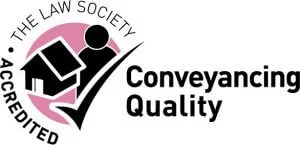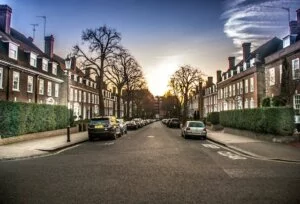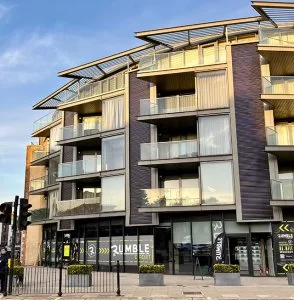Making Alterations to a Leasehold Property

Contact
Table of Contents
What is a Leasehold Property?
There are two main types of property in England and Wales, freehold and leasehold property. As a leasehold property owner you own the property, however, the land on which it is built belongs to the freeholder. The owner of a leasehold property has purchased the right to use that property for the period covered by the term of the lease: this term can run to around 125 years. If the leasehold expires, ownership technically passes to the freeholder. However, The law gives leaseholders of residential property the right to extend the Term of their leases.
According to the Leasehold Advisory Service, in England and Wales, the current property law requires that all flats are leasehold, with some exceptions such as those which are sold with a share of the freehold via a residents management company. Houses are usually sold as freehold property because it is apparent that the land and property it is built on can be owned by a single owner. However, it is becoming more common to find new-build houses being sold as leasehold property.
What Changes Can You Make to a Leasehold Property?
Over the past few years, stories about unfair leasehold practices have been cropping up with greater frequency. As reported by The Estates Gazette in September 2017, the Government recently performed a review of leasehold practice. A seemingly secondary finding of this consultation was that many leaseholders are not aware of the conditions of their lease, having purchased leasehold properties without a complete understanding of their obligations. So with this rather startling fact in mind, here is a brief overview of what you need to think about if you own, or are considering buying a leasehold property, and are considering a renovation of the building.
Can you make leasehold alterations without consent?
If you own your property’s freehold, you are entitled to alter any aspect of the building you wish, as long as the plans comply with building regulations and planning permission. However, if you own property under a leasehold, and you wanted to make a structural alteration such as building an extension, knocking down walls or even putting in new windows, you would need to obtain prior consent from the freeholder/landlord. You must abide by the terms of your lease, which are likely to stipulate the accepted use of the property, including potential sub-letting and whether or not the internal structure may be altered.
If alterations are carried out without consent you are likely to be in breach of the terms of your lease, this has two practical consequences:
- Firstly, you are unlikely to be able to sell your flat until the consent has been obtained, as a potential buyer is unlikely to be willing to take on the outstanding breach; and
- Secondly, the freeholder may take legal action against you for the breach of lease which could mean paying damages or even having to reinstate the property back to how it was before the alterations.
What is a structural alteration or addition?
A structural alteration means making changes to any part of the supporting structure of the building including changes to external walls, bearing walls, the foundations or the roof. Changes that increase the size or height of the property such as loft conversions, conservatories, rear extensions or basement excavations are all considered to be structural alterations.
The leasehold ownership usually relates to everything within the building but does not extend to external or structural walls. So, the landlord continues to own the structure of the building as well as any communal areas and the land on which it is erected. For this reason, the landlord is usually responsible for any external maintenance and repair, the costs of which are commonly recouped through service charges. But what should you do if you wish to change the layout of your home, or to make significant structural alterations that better suit your lifestyle?
Structural Alteration – the Legal Considerations
- The lease should contain details regarding any potential alterations to your property. You may find that alterations are forbidden or may only be permitted if explicit consent is obtained from your landlord. Because your lease is a legal contract between you and the freeholder, once signed, it can be difficult to change the conditions contained within it. However, if your current lease entirely prohibits any new work, then you may have the option of purchasing an altered lease that will allow you to conduct alterations.
- Under the terms of your lease, you may require consent for any structural alterations, from all parties living within your building. This may even be the case for the installation of seemingly trivial items such as a satellite dish.
- In order to commence construction, you will require formal written consent in the shape of a Licence to Alter, also known as the License for Alterations. The Licence is a document from the landlord that authorises the work to take place and also ensures that all parties potentially affected by the alterations are protected.
- You will have to cover any legal costs that arise from your landlord’s surveyor and legal fees, in addition to any subsidiary costs that may be incurred, such as the fees involved in gaining planning permission.
- In planning any structural alteration, you must remember to take into consideration access rights. If the work will necessitate intrusion into space owned by another party, you could be in breach of your lease if you do not gain the proper permissions. Without this permission you may be required to halt work, or restore the property back to its original state. In some cases, a breach can even result in the landlord taking back the property.
What if my landlord wants to make alterations?
On the other hand, you may be in a situation where it is your landlord who wishes to make internal structural alterations, for example converting the loft space above your accommodation into another flat. If this is the case, check your lease carefully. If the lease stipulates that you own the space, then you have the gift of agreement or refusal. Use this gift wisely and preferably in conjunction with advice from a residential property lawyer.
How to Proceed
So, whether you are currently living in or considering the purchase of a leasehold property, you should consider where you stand legally regarding any structural alterations. To this end, it is important to examine the lease carefully. The help of a legal professional could prove invaluable in understanding any restrictions, obligations and rights contained with the lease. You can then rest easy knowing that you have a secure home and that you have made a solid investment in your future.
Further information:
For further advice from our London lawyers or to discuss any queries, you may have, please call us or click on the links below.
Share this article
Related InsightsVIEW ALL
- 27.5.2024
The Leasehold and Freehold Reform Bill 2024
The Leasehold and Freehold Reform bill was one of the last pieces of legislation to make it through Parliament on...
Read more - 8.11.2023
Leasehold update: A new Leasehold and Freehold Bill...
Yesterday, 7th November 2023, in the King’s Speech we heard the following: “My Ministers will bring forward a bill to...
Read more - 11.5.2023
Lease Extension Negligence
What is Lease Extension Negligence? Solicitors Negligence when a Tenant claims a new lease of a flat under the Leasehold...
Read more - 30.1.2018
Understanding Your Lease
The security of shelter is a basic human requirement and is even more important if we have a family or...
Read more - 31.10.2017
Can you rent a property to then rent...
What is Airbnb rent-to-rent? Airbnb rent-to-rent is where an individual rents a property from a landlord, typically under a standard...
Read more








